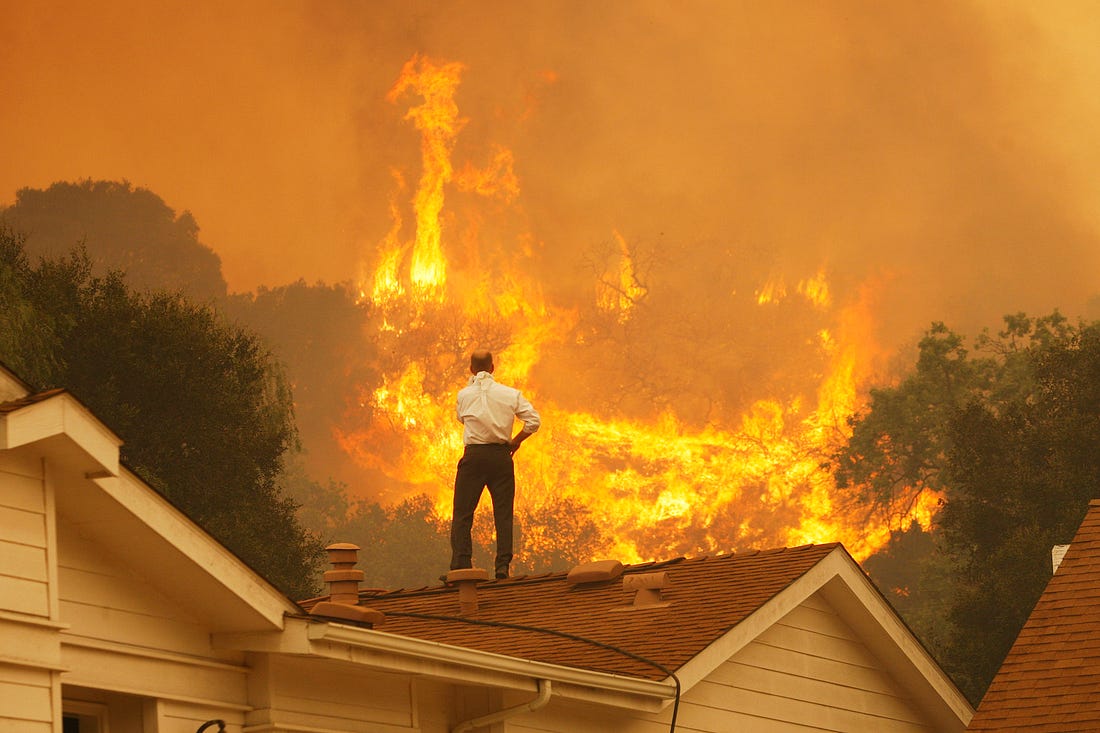|
 |
Good afternoon, Press Pass readers. I’m wrapping things up here in Rome and wanted to thank you all for the kind words and support during this hectic week. I want you to know that this is the kind of stuff you can expect from The Bulwark, that we’ll jump on to bring you the freshest reporting and analysis any time. Press Pass will be on hiatus for a couple weeks, but I’ll be back on Capitol Hill in May with the regular gloom and doom. The best way to support our mission is to upgrade to a Bulwark+ subscription, where you’ll get access to everything we offer, including ad-free podcasts.
Today’s edition was originally slated for Tuesday before the sudden death of Pope Francis, but it’s still relevant as we near Trump’s first 100 days in office. It’s about how climate change could become relevant to American voters. I mean, obviously climate change is relevant to everyone, but it doesn’t require any special candor to admit that the issue registers as a top concern for only a small number of voters. But the Trump administration’s careless slashing of agencies and federal contracts, combined with their vindictiveness about natural disaster relief, could bring climate to the front of voters’ minds in ways Republicans might not be anticipating. In addition, the U.S. defense industry could be in for rough sailing because of the White House’s new hostility towards longtime American allies. All that and more, below.
Trump Might Finally Make Voters Care About Climate Change
The White House’s actions are making the issue relevant in ways they aren’t considering.
CLIMATE CHANGE DID NOT RANK HIGH among policy concerns heading into the 2024 election, according to a far-reaching Gallup survey. Just 21 percent of registered voters called it “extremely important,” while 29 percent said it was “very important.” The rest characterized the existential threat to humanity as either “somewhat important” (24 percent) or “not important” (26 percent).
But there are new factors that could make climate change—or at least climate-related issues—more pressing for the average voter. Take, for example, President Donald Trump’s clampdown on job-providing green-energy initiatives.
On Wednesday, Interior Secretary Doug Burgum announced he was halting an offshore wind project in New York aimed at providing energy to half a million homes. In a memo, Burgum claimed the pause was needed to allow an investigation into claims that “approval for the project was rushed through by the prior Administration without sufficient analysis or consultation among the relevant agencies as relates to the potential effects from the Project.”
Equinor, the Norwegian company building the wind project, is complying with the order, but noted that it had already put some 1,500 New Yorkers to work. Advocacy organization Climate Power estimates around 50,000 jobs have been eliminated or frozen as a result of the Trump administration’s cuts.
I discussed the situation with former Washington governor and 2020 presidential candidate Jay Inslee, who said Trump is “trying to put the kill switch on thousands of jobs all across the United States.” (The former governor now works with Climate Power.)...
Join The Bulwark to unlock the rest.
Become a paying member of The Bulwark to get access to this post and other subscriber-only content.
A subscription gets you:
| Unlimited access to articles and all our newsletters including Morning Shots by William Kristol and The Triad by JVL. | |
| Ad-free versions of all our shows including member-only shows: The Secret Podcast, Just Between Us; and livestreams. | |
| Plus community chats and commenting features. Your support helps keep our work sustainable. Cancel anytime. |
